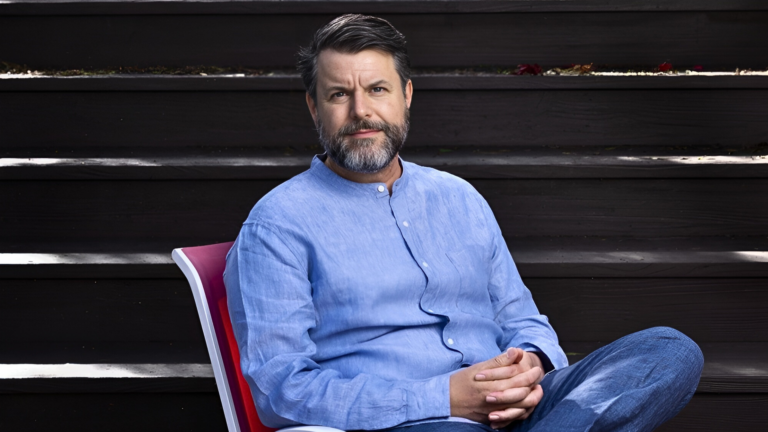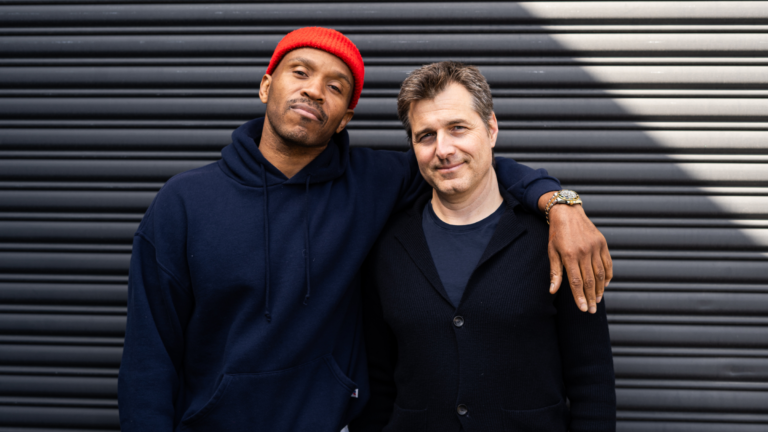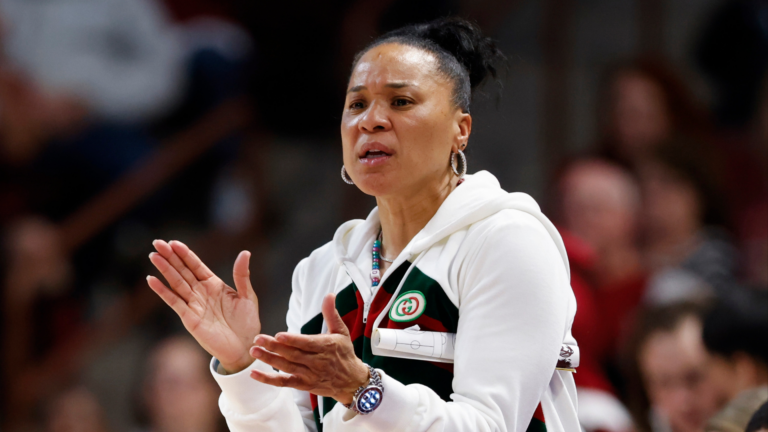This week’s conversation is with professional volleyball players and Olympians Alix Klineman and April Ross. Otherwise known as, The A-Team.
On August 6 of this year, Alix and April captured the gold medal at the 2020 Summer Olympics, after winning in straight sets versus Australia.
In the entire tournament, they went undefeated in match play, only losing one set throughout seven matches.
Two weeks later, the pair won the AVP Manhattan Beach Open, their second time winning this tournament together.
I’ve had the privilege to work with both of them – Alix while she was a member of the USA women’s national team for indoor volleyball and April throughout the 2016 Olympic Quad.
It was an absolute joy to watch them come together to grab the gold in Tokyo.
In this conversation, we discuss their journey to Gold… the formation of their partnership, their process for building trust, and what goes into performing at their best when the stakes are the highest.
“We really try as hard as we can to practice. I think that’s one of the best things we do, is we put a lot of pressure on ourselves. Win in practice. Practice winning.”
In This Episode:
April’s soul searching after the Rio Olympics
Post-Rio, I wasn’t sure exactly what I was going to do. I didn’t know my path forward. Kerri and I ended up going different directions and it was a really tough time for me actually. And I didn’t have a partner. I didn’t know, if I was going to keep playing, who I was going to play with, what my long term goals even were, personally and professionally. It was a very ambiguous time for me and I had to do a lot of soul searching.
April’s drive for gold
This deep drive of mine and I think this goal to get a gold medal was a lot bigger and had a much stronger pull on me than I even realized. And I just felt like I wasn’t finished with my career and I wasn’t ready to stop in that way. And I think I had a really hard time accepting that and putting that into practice and acting on it. And so, deciding to continue to go for Tokyo was really clarifying for me. And I was highly engaged after that. Once I decided what I wanted to do and where my heart was, I was so fired up and so motivated.
April, keeping her future self in mind
Everything required me to figure out in the moment what I was doing and what I wanted. And it was like, just put one foot in front of the other and make the next baby right decision that I could. And it was emotionally draining for sure. And yeah, it was just the next day like, “What can I do to get through the next day and help my future self out?” That’s one thing I’ve always done in my life. I feel like I’ve kept my future self in mind when trying to work through challenges and trying to set myself up for success. So as hard as the things were that I was going through, I wanted to be there for myself and make sure that I was creating the best path forward.
Why Alix moved from indoor to beach volleyball
There was something in me that just felt this tug towards the beach, and having a new opportunity, and being able to pursue my dreams in a new way, because I could tell that I was not my best self in the national team gym. I wasn’t reaching my potential even overseas. I was playing so much better than I was in the national team. And so there was something about the environment that did not agree with the way that I was approaching things. It wasn’t a total fit.
Alix’s superpower? Conviction.
In fact, it was pretty guaranteed that I probably wouldn’t make any money my first year. It was pretty guaranteed that I wouldn’t have very much success immediately. And for whatever reason, I made this choice with so much conviction and I knew that it’s what I wanted to do. And I just said, “Screw everybody else. I don’t care if this doesn’t make sense, but this is what I want to do.” And I did it, and I think that that is such a big part of why I was successful because I had so much conviction. There was nobody telling me that this is the right thing for me. It was what I felt and what I wanted. And there was so much failure that had translated into motivation, that I had such a drive on the beach and I knew I had so much ground to cover, but at the same time, there was never a doubt in my mind that that’s where I wanted to be, and that I belonged there, and that it was the right place for me.
How FOPO worked against Alix
I don’t really care that much about what other people think or I’m very true to myself. But I do think that in the national team gym, there is that environment when I was playing indoor, that you have to care what the coach thinks, right? Because he’s the one making all the decisions and he’s the one that’s choosing to put me on rosters or not put me on rosters. And so, I almost felt like it forced me to spend all of this time concerned with how I was being perceived, which is not how I like to conduct myself. And I think that is maybe why I didn’t really thrive in that environment, because I wasn’t really ever able to let go of what the coach thought of me or what potential he saw on me. It was like, “That’s not the way that I’m going to play my best.” That’s how I was trying to approach it.
Setting up a collaborative team dynamic
Alix – It’s not like I was coming in thinking I was as good as April and now I have to share the spotlight or figure out what our roles are, whatever. I came into this whole sport and process being like, “I am at ground zero. I have to learn everything.” And I was very open-minded and I tried to be very realistic with where I was at. And I was like, “Okay, I’m not good right now, and I need to just soak up as much as I can and learn as much as I can from April and from Jen.” And it was very much a growth mindset, I feel like from my perspective, and I feel like April had so much knowledge to share. And I think that’s why it did really work.
April – I wanted to play with Alix not just because I thought she could be a really good volleyball player. There were other attributes of hers that I really admired and respected and valued. And so I wanted to make sure that we were a team and we were collaborating. And it wasn’t like, “Okay, you come in and you do what I say, and you’re going to be on my team, and we’re going to do this system.” It was like, “Okay, how do you want to play, and what makes sense to you, and how can we make this most effective?”
The importance of setting a standard, at practice
April – We really try as hard as we can to practice. I think that’s one of the best things we do, is we put a lot of pressure on ourselves. Win in practice. Practice winning. Each rep we want to be perfect, but sometimes we just don’t do well in practice and we don’t do well in warmups, and we get really frustrated. And then we get into the match, and for whatever reason, it I think motivates us in some way to perform.
When things don’t go according to plan, how do they react?
Alix – If we do bad or something goes wrong, or if we have one match where we lose, we go back to the drawing board and we’re like, “We have to do everything different.” Or not different but like, “Why is everything going so wrong?” And it’s like we definitely freak out a little bit… we’re just such high achievers and we have high standards. And when we don’t meet that standard, it’s like, this is the end of the world? And we treat it like that.
Perfectionist mindset
April – We’re definitely both perfectionists. And I know that is an evil word. And many people have tried to break us of that and convince us that perfection is the enemy of good and all of that. And maybe don’t be so intense. When we’re warming up, coaches have tried to lighten the mood. And it just doesn’t work for us. Or maybe it would if we had another five years to work on it or something, but I think it’s so ingrained in us how we operate, and we need that fuel.
Alix – I do really believe that we are perfectionists until we hit a wall and then we get in survival mode and we turn into competitors. So I think there’s a point where we want to do everything great and perfect and whatever. And then we get into a match and we have to be gritty, and we get gritty. After we realize our perfectionist side isn’t really serving us, and then I feel like we’re able to flip a switch and then just grovel and get ugly points and find a way to win. And I think this is what has been maybe the most rewarding thing of playing on the beach and playing with April, is that there isn’t just one model of how to be successful. For me, there’s so many different ways that you can be successful.
Stress before the Tokyo Games
Alix – I felt like I was holding in all of this nervous energy, and I wasn’t able to share it and just accept it and deal with it and put it out there. And I think at that time, April was feeling decently calm, but I just was like I can tell that this is weighing on me and it’s in the back of my head a lot. And so we had a long conversation about it and just tried to get it zoomed out, perspective of it all. And at the end of the day, people don’t spend their whole lives thinking about how I did at the Olympics. Also, who cares what other people think? You’re just taking a step back and being like, “What does this really mean to me? And how will this affect my life?” And so I think it gave me a better perspective.
April – leading up to Tokyo was pretty stressful. And I was having problems with… I think I had so much anxiety. I was worried and I’d have a distracting thought during training or competition. And it’s not a big thought, it’s something stupid. But then I’d overanalyze it and I’d be afraid like, “Oh my gosh, what if I get to the Olympics and I have this stupid distracting thought, and it makes me mess up and we don’t win a gold medal because I was thinking about this stupid thing?” And so I started having this obsessive thought pattern, and I was really worried about it. And I actually got to a point where I was like… “I just need to talk to somebody about it.”
How therapy helped
April – we had a lot of time to think during the pandemic, right? I’ve always worked from, set your big goal and obviously what little things along the way do you need to do to achieve that. And I’m really big on making sure you do all of those things if really want something to happen. And then one of them was see a therapist. And I wanted to be doing it for like a year. Finally made it happen three months out. But I’m really proud of myself because it’s hard. I literally picked someone on Google and called them, and it worked out. But I think it’s hard to ask for help sometimes a lot of the time.
Dealing with negative thought patterns
April – If it happened off the court, I would replace the thought. And one thing that was really helpful for me was some self soothing mantras, and really what would I say to a friend if they were having these thoughts, and really how would that make them feel, and really feeling that myself. And what would it feel like if a friend said that to me, and trying to embrace that. And that helped a ton, giving myself a little bit more acceptance and room to be human… And then if it was on the court, and this is a combination of what I learned from Nicole Davis also, when we come out, pick something to anchor to. So if I did feel this spiral starting or these thoughts coming in, I knew exactly what I was going to go to, to bring me back to the moment. And that was my feet in the sand. So I would feel my feet in the sand. Sometimes just even look at my feet in the sand, and it would bring me back to the moment.
What have the last few years taught them?
Alix – I think I have a different perspective on what it takes to win. When I was playing indoor, I always felt like there needed to be this magic clutch moment that you needed to take hold of to win a big match, or there needed to be this, I don’t know, something super special and out of the ordinary needed to happen. And I think what April and I have tapped into, and maybe she’s tapped into this for a while, but we are so consistent with the way that we put in work every day. And I think that, yeah, there were ups and downs, and there are times that we panicked a little bit, or there’s times that we were anxious. But the level and the quality and the intensity of the work that we put in was just so consistent across the board over four years, that our base level of performance just ended up being so high when it came time to perform.
April – I’ve started to really cultivate a trust in myself, and I’m really big at proving to yourself that you can trust yourself, and coming through all the challenges and all the stress and really, like I said before, trying to do what’s best for my future self. And knowing that if I work really hard I’m going to figure it out. I’m going to make mistakes, I’m not going to always know the answer, but I can trust myself to do the best with reality and the present moment and figure it out and figure a way forward. Life is uncertain. I’m a control freak, and I’m never going to be able to control the future, but I’m continuing to learn that I can trust my future self also to do the best for myself. And I think it’s shown through my career that I can find the best in whatever situation I’m in. And for me, that feels really good.
Advice they would give the younger generation
April – Follow their heart and do what they’re passionate about. There’s a lot of, I feel like, pressure on kids these days to be super successful at one thing or another, what their parents want or what their coaches want. And I think we’re both good examples of following your heart and doing what you feel is best for you. And I think it’s good to be coachable and take advice, but really filter it through the lens of what feels authentic to you and go after that, because that’s really what you’re going to work the hardest at and probably be the most successful at.
Alix – I honestly would say almost the exact same thing. I think, figure out what you want and don’t let anybody tell you no. And don’t do it somebody else’s way.


